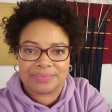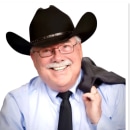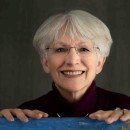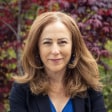Loneliness and Elder Speakers
You've got a spot to fill with someone who really gets the emotional weight of aging... but every speaker you check out sounds too clinical, too vague, or just not the right fit.
You need someone who can speak clearly about loneliness in later life, connect with audiences of all ages, and actually bring meaningful stories or solutions to the table.
So where do you find loneliness and elder speakers who actually know what they're talking about - and can keep a room engaged?
Whether you're planning a panel, podcast, summit, or YouTube feature, this guide will help you cut through the noise.
You'll see what loneliness and elder speakers focus on, how they approach tough topics like isolation, caregiving, and ageism, and who their talks are best suited for.
I've seen how the right voice can bring clarity and empathy to these conversations.
Ready to find someone who can do that for your audience?
Scroll through these top loneliness and elder speakers and see who feels like the right fit for your next event.
Top Loneliness and Elder Speakers List for 2026
Bettina Bennett
Storyteller & nerd, talking about friendship, female entrepreneurship, and the realities of aging in a world that still underestimates women
Pamela Slaughter
Championing Connection: Inclusivity Outdoors, Community Empowerment, and Advocating for Elder Well-Being.
Ed Zinkiewicz
Navigate the challenges of aging with confidence and creativity
Marie Morgan
Redefining life after 60 as our Prime Time
Loren Crawford
Mental fitness and purpose coach, unlocking deeper fulfillment for high-achievers in midlife
Christina Keys
Empowering Family Caregivers and Businesses through education, advocacy, awareness, and story telling to help create positive change
Elizabeth Verwey
Writer and Speaker with brand new topic - a new post-divorce stage. New book-Brave New Endings: True Stories of Caring for an Ex.
Deborah Greenhut
Creative story whisperer focused on your resilience – let's connect!
Di Kersey
I help midlife women who feel invisible reclaim their voice, presence, and influence, and be the echo of every voice that was never heard.
Hanna Bankier
Helping mamas spread their wings as their little ones leave the nest.
What Makes a Great Loneliness and Elder Speaker
Take someone like Dr. Vivek Murthy, the U.S. Surgeon General, who's spoken extensively about the epidemic of loneliness. When he talks, he doesn't just cite statistics - he shares moments from his medical career, stories of patients who felt invisible, and the ripple effects of disconnection. That's what makes a speaker memorable: the ability to humanize data and make abstract issues tangible.
Great loneliness and elder speakers also know their audience. A healthcare conference might need a speaker who can dive into policy and elder care systems, while a community event might benefit more from someone who can speak to intergenerational relationships and practical solutions. The best speakers adjust their tone, content, and delivery to meet the room where it is.
And finally, authenticity is everything. Audiences can sense when someone is speaking from a place of genuine care versus someone who's just reading off a slide deck. The great ones? They make you want to call your grandmother, volunteer at a senior center, or rethink how your company supports aging employees. That's impact.
How to Select the Best Loneliness and Elder Speaker for Your Show
1. Define Your Audience and Goals
- Are you targeting caregivers, healthcare professionals, tech innovators, or the general public?
- What's the desired outcome? Awareness, action, policy change, or emotional resonance?
- This clarity helps you filter speakers who match your intent.
2. Search with Specificity
- Use platforms like Talks.co to browse speaker profiles by topic, tone, and availability.
- Look for keywords like 'aging', 'social isolation', 'elder advocacy', or 'gerontology'.
- Check if they've spoken at events similar to yours - TEDx, Aging2.0, or local community summits.
3. Review Their Content
- Watch at least one full-length talk. Are they engaging? Do they use stories, data, or both?
- Read their blog posts or LinkedIn articles to understand their thought leadership.
- Bonus: Look for speakers who've been interviewed. It shows they're media-ready.
4. Assess Fit and Format
- Do they offer virtual options? Can they tailor their talk to your format - keynote, panel, or fireside chat?
- Are they comfortable with Q&A or live interaction?
- If your show is global, consider cultural sensitivity and language accessibility.
5. Reach Out Thoughtfully
- Use the speaker's contact form or Talks.co's messaging feature.
- Be clear about your event goals, audience, and what you're looking for.
- Ask for a short discovery call to see if there's chemistry.
Selecting the right speaker is part art, part strategy. Take your time - the right voice can turn a good show into a transformative one.
How to Book a Loneliness and Elder Speaker
1. Start with a Shortlist
- Use Talks.co to browse profiles and filter by topic, availability, and speaking style.
- Check speaker directories, nonprofit organizations like AARP, or academic institutions with gerontology departments.
- Aim for 3-5 potential speakers to contact.
2. Reach Out with a Clear Ask
- Send a concise message outlining your event, audience, date, and why you think they're a fit.
- Example: "We're hosting a virtual summit on aging and mental health for 1,000+ healthcare professionals. Your work on elder loneliness would be a perfect fit for our keynote slot."
- Include a link to your speaker page or event site if available.
3. Confirm Logistics Early
- Once they express interest, schedule a quick call to align on expectations.
- Discuss format (keynote, panel, Q&A), tech setup (Zoom, StreamYard, etc.), and time zone.
- Ask about their speaker fee or if they're open to pro bono appearances for nonprofit causes.
4. Send a Speaker Agreement
- Even for free talks, a simple agreement helps clarify deliverables, timelines, and permissions.
- Include details like topic title, duration, recording rights, and promotional expectations.
5. Prep and Promote
- Share your audience profile, sample questions, and any branding guidelines.
- Promote the speaker on your event page and social media - tag them and encourage cross-promotion.
- Schedule a tech check or rehearsal if needed.
Booking is more than a calendar invite - it's about building a relationship. Treat your speaker like a partner, and they'll bring their best to your stage.
Common Questions on Loneliness and Elder Speakers
What is a loneliness and elder speaker
They might come from diverse backgrounds: healthcare professionals, social workers, researchers, nonprofit leaders, or even older adults themselves who share lived experiences. What unites them is their focus on the intersection of aging and emotional well-being.
Unlike general wellness speakers, loneliness and elder speakers zero in on topics like ageism, the digital divide, caregiving, retirement transitions, and the mental health implications of social isolation. Their talks often include data, personal stories, and actionable solutions - from community-building strategies to policy recommendations.
Some well-known examples include Marc Freedman, founder of Encore.org, who speaks about purpose in later life, or Dr. Julianne Holt-Lunstad, whose research on social connection has shaped public health discussions worldwide. These speakers don't just inform - they challenge audiences to rethink how society values and supports its aging population.
Whether speaking at medical conferences, corporate DEI events, or local town halls, loneliness and elder speakers play a crucial role in shifting narratives around aging and connection.
Why is a loneliness and elder speaker important
First, they help normalize the conversation. In many cultures, loneliness is stigmatized, especially among older adults who may feel ashamed to admit they're struggling. A speaker who openly discusses these issues can validate those feelings and open the door to dialogue.
Second, they educate. Many people - even professionals in healthcare or tech - don't fully grasp how isolation affects cognition, mobility, and mortality. A well-informed speaker can connect the dots between loneliness and outcomes like dementia, depression, and hospital readmissions.
Third, they inspire action. Whether it's a city planner rethinking public spaces, a startup designing inclusive tech, or a family member reaching out more often, these talks often lead to real-world change. For example, after a keynote at a UK aging summit, several local councils implemented 'companion benches' to encourage conversation among seniors.
Finally, they bring diverse perspectives. Loneliness doesn't look the same in Tokyo as it does in rural Texas. Speakers from different regions and backgrounds help audiences see the issue through multiple lenses, making solutions more inclusive and effective.
What do loneliness and elder speakers do
- Raise Awareness Through Storytelling. They share compelling narratives that highlight the emotional and societal impact of isolation in older adults. These stories often come from personal experience, research, or community engagement.
- Translate Research into Actionable Insights. Many speakers are academics or practitioners who distill complex studies into digestible takeaways. For example, they might explain how social isolation increases the risk of cardiovascular disease and offer practical interventions.
- Influence Policy and Institutional Change. Some speakers work with governments, NGOs, and corporations to shape age-friendly policies. Think of someone like Ai-jen Poo, who advocates for elder care workers and systemic support for aging populations.
- Facilitate Intergenerational Dialogue. They often lead workshops or panels that bring together youth and elders to bridge generational divides. These sessions can be powerful in schools, workplaces, or community centers.
- Promote Innovation in Aging Tech. In tech-forward events, these speakers might highlight tools that combat loneliness - like companion robots in Japan or social apps tailored for seniors.
- Support Caregivers and Families. They provide guidance on how to support aging loved ones emotionally and socially, not just physically. This is especially relevant in multicultural households where elder care norms vary.
In short, loneliness and elder speakers don't just talk - they activate. Their work spans education, advocacy, and community-building, making them essential voices in conversations about aging and connection.
How to become a loneliness and elder speaker
1. Define Your Unique Angle.
- Are you focusing on elder care in rural communities? Tackling loneliness in urban retirement homes? Maybe you're blending mental health with aging advocacy. Clarify your niche.
- Tip: Look at existing speakers on Talks.co and note how they position themselves. What gaps can you fill?
2. Build Your Expertise.
- You don't need a PhD, but you do need credibility. That could come from professional experience in gerontology, social work, or even lived experience caring for aging relatives.
- Consider certifications in elder care, psychology, or public health to boost your profile.
3. Create a Speaker Page.
- Use platforms like Talks.co to build a speaker page that showcases your bio, topics, testimonials, and past talks.
- Include a short video introduction. Hosts want to see how you connect with an audience.
4. Start Small, Then Scale.
- Offer free talks at local community centers, libraries, or online summits. Record these sessions to build your portfolio.
- Reach out to podcast hosts or virtual event organizers who focus on aging, mental health, or caregiving.
5. Connect Hosts and Guests.
- Use Talks.co or LinkedIn to network with event organizers. Offer to introduce them to other speakers or experts. Being a connector builds trust and opens doors.
6. Refine Your Signature Talk.
- Develop a core presentation that you can adapt for different audiences: caregivers, healthcare professionals, policymakers, or the elderly themselves.
- Practice it live, gather feedback, and iterate.
Once you've got momentum, you can start charging for your talks, booking paid gigs, and even launching your own events. The key is to start with clarity, build trust, and keep showing up.
What do you need to be a loneliness and elder speaker
1. Subject Matter Expertise
You don't need to be a licensed therapist or gerontologist, but you do need to understand the landscape. That might come from:
- Professional experience in elder care, mental health, or social work.
- Personal experience supporting aging parents or volunteering with isolated seniors.
- Research and ongoing learning about aging, loneliness, and community health.
2. Communication Skills
You've got to be able to speak with empathy and authority. That means:
- Crafting stories that resonate emotionally.
- Using data and case studies to back up your points.
- Adapting your tone for different audiences: from policymakers to caregivers to the elderly themselves.
3. A Platform to Share From
This is where Talks.co comes in. Having a speaker page with your bio, topics, and video clips makes it easier for hosts to book you. It also helps you look professional and polished.
4. A Network of Hosts and Peers
You'll need to connect with event organizers, podcast hosts, and other speakers. Building relationships is key. Try:
- Joining online communities focused on aging or mental health.
- Attending virtual summits or webinars.
- Offering to guest on podcasts or panels.
5. A Clear Message
What's your core idea? Are you advocating for policy change? Promoting intergenerational connection? Teaching tech skills to reduce isolation? The clearer your message, the easier it is for audiences to remember you.
In short, being a loneliness and elder speaker is about combining heart with strategy. You need to know your stuff, speak it well, and show up where people are already listening.
Do loneliness and elder speakers get paid
The Demand
With aging populations in countries like Japan, Italy, and the U.S., and rising awareness about the mental health crisis among seniors, demand for speakers in this space is growing. Conferences on aging, healthcare summits, nonprofit events, and even corporate wellness programs are looking for experts who can speak to these issues.
Paid vs. Unpaid Opportunities
- Paid gigs: These are more common at professional conferences, government events, and corporate trainings. Speakers can earn anywhere from $500 to $10,000+ depending on their reputation and the event budget.
- Unpaid gigs: Community centers, local nonprofits, and grassroots events might not offer payment, but they can be great for building your portfolio and credibility.
Factors That Influence Pay
- Experience: Established speakers with media appearances or books command higher fees.
- Location: Speaking in major cities or at international events usually pays more.
- Format: Keynotes pay more than panels or workshops.
Pros
- Growing demand in aging societies.
- Opportunities across public, private, and nonprofit sectors.
- Potential for recurring bookings.
Cons
- Some events have tight budgets.
- You may need to start with unpaid gigs.
- Niche topic may limit audience size.
In short, yes, loneliness and elder speakers get paid, but like any niche, it takes time to build up to consistent, high-paying opportunities.
How do loneliness and elder speakers make money
1. Paid Speaking Engagements
- Keynotes at aging conferences, mental health summits, or healthcare expos.
- Workshops for caregivers, retirement communities, or elder care professionals.
- Webinars hosted by nonprofits or government agencies.
2. Consulting and Training
- Offering consulting services to organizations looking to improve elder outreach or loneliness mitigation strategies.
- Designing training programs for staff in nursing homes, hospitals, or social services.
3. Digital Products and Courses
- Creating online courses on topics like 'Reducing Isolation in Aging Populations' or 'Building Intergenerational Communities'.
- Selling toolkits or guides for caregivers and families.
4. Books and Publications
- Publishing a book or eBook can open doors to higher speaking fees and media appearances.
- Articles in journals or blogs can also lead to paid opportunities.
5. Affiliate and Sponsorship Deals
- Partnering with elder tech companies (like GrandPad or Papa) to promote their services.
- Sponsored talks or webinars hosted by health organizations.
6. Hosting Events or Summits
- Running your own virtual summit on Zoom or similar platforms.
- Charging for access or offering premium tiers with bonus content.
Comparison Table:
| Revenue Stream | Effort Level | Income Potential |
|---|---|---|
| Keynote Speaking | Medium-High | High |
| Consulting | High | High |
| Online Courses | Medium | Medium-High |
| Books/Publications | Medium | Medium |
| Sponsorships | Low-Medium | Medium |
| Hosting Summits | High | High |
How much do loneliness and elder speakers make
Entry-Level Speakers
- These are folks just starting out, maybe with a few local talks or webinars under their belt.
- Typical earnings: $0 to $500 per talk.
- Often supplement income with a day job or consulting.
Mid-Level Speakers
- Have a speaker page on platforms like Talks.co, some media exposure, and a few paid gigs.
- Typical earnings: $500 to $3,000 per talk.
- May earn $20,000 to $60,000 annually from speaking, depending on volume.
High-Level Speakers
- These are authors, TEDx speakers, or well-known advocates in the aging or mental health space.
- Typical earnings: $5,000 to $15,000 per keynote.
- Annual income from speaking alone can exceed $100,000, especially when combined with consulting or course sales.
Global Variation
- In the U.S. or UK, fees tend to be higher due to larger budgets.
- In developing countries, fees may be lower, but virtual talks can still be lucrative.
Other Factors
- Virtual vs. in-person: Virtual talks often pay less, but are easier to scale.
- Audience size: Speaking to a national association pays more than a local nonprofit.
Sample Income Scenarios:
| Speaker Type | Talks/Year | Avg Fee | Total Income |
|---|---|---|---|
| Beginner | 10 | $200 | $2,000 |
| Mid-Level | 20 | $1,500 | $30,000 |
| High-Level | 30 | $7,000 | $210,000 |
How much do loneliness and elder speakers cost
1. Local or Community Speakers
- Often professionals or advocates with lived experience.
- Cost: $0 to $500.
- Ideal for libraries, community centers, or small nonprofits.
2. Mid-Tier Professional Speakers
- These speakers may have a book, podcast, or regular speaking schedule.
- Cost: $1,000 to $5,000 per event.
- Common at regional conferences or corporate wellness events.
3. High-Profile Experts or Authors
- These are TEDx speakers, published authors, or media personalities.
- Cost: $5,000 to $20,000+ per keynote.
- Often booked for national conferences or government events.
4. Virtual vs. In-Person
- Virtual talks typically cost 30-50% less.
- However, some speakers charge the same if the prep and customization are intensive.
5. Additional Costs
- Travel and lodging for in-person events.
- Custom workshop design or post-event consulting.
Cost Comparison Table:
| Speaker Type | Virtual Fee | In-Person Fee | Notes |
|---|---|---|---|
| Community Advocate | $0 - $300 | $100 - $500 | May speak for exposure |
| Mid-Level Speaker | $500 - $2,500 | $1,000 - $5,000 | Often has a Talks.co profile |
| High-Profile Expert | $3,000 - $10,000 | $5,000 - $20,000 | Includes media personalities |
Who are the best loneliness and elder speakers ever
- Dr. Vivek Murthy. Former U.S. Surgeon General and author of 'Together: The Healing Power of Human Connection in a Sometimes Lonely World'. He's a global voice on loneliness as a public health issue.
- Jane Fonda. While known for her acting, Fonda has spoken extensively about aging, loneliness, and the importance of community in later life.
- Dr. Bill Thomas. A geriatrician and founder of The Eden Alternative, he's revolutionized how we think about elder care and aging.
- Marc Freedman. Founder of Encore.org and author of 'How to Live Forever', Freedman speaks on intergenerational connection and purposeful aging.
- Rosalind C. Barnett. A psychologist and researcher who's addressed the emotional and social challenges of aging in her talks and books.
- Jo Ann Jenkins. CEO of AARP, she's a powerful speaker on aging with dignity and purpose.
- Dr. Julianne Holt-Lunstad. A leading researcher on loneliness and its health impacts, her work is often cited in global health policy.
- Ashton Applewhite. Anti-ageism advocate and author of 'This Chair Rocks', she's a bold speaker challenging stereotypes about aging.
- Dr. Karl Pillemer. Cornell professor who's interviewed thousands of elders for wisdom on life, relationships, and community.
- Henrietta Fore. Former UNICEF Executive Director, she's spoken globally on aging populations and social inclusion.
These speakers have shaped the conversation around loneliness and aging, not just in their countries but globally. Their work has influenced policy, healthcare, and how we think about growing older.
Who are the best loneliness and elder speakers in the world
- Vivek Murthy (USA). As U.S. Surgeon General, Murthy has made loneliness a national health priority. His TED talks and book 'Together' are widely cited.
- Ashton Applewhite (USA). A fierce advocate against ageism, Applewhite speaks at global forums and her talks challenge how society views aging.
- Dr. Julianne Holt-Lunstad (USA). Her research on the health risks of loneliness has been featured in WHO reports and international conferences.
- Dr. Alexandre Kalache (Brazil). Former WHO director of aging, he speaks globally about age-friendly cities and social inclusion.
- Kenji Toba (Japan). A geriatrician and speaker on Japan's aging crisis, he's a key voice in Asia on elder care innovation.
- Deborah Kado (USA). A Stanford professor and speaker on aging and bone health, she integrates medical science with social well-being.
- Marc Freedman (USA). Founder of CoGenerate (formerly Encore.org), he's a global voice on intergenerational collaboration.
- Tina Woods (UK). Founder of Collider Health, she speaks on healthy aging, tech for seniors, and social innovation.
- Dr. Linda Fried (USA). Dean of Columbia's Mailman School of Public Health, she's a leading speaker on aging and resilience.
- Dr. Nidhi Gupta (India). A rising voice in South Asia, she speaks on elder mental health and community-based care models.
These speakers are shaping how we understand and address loneliness and aging across cultures, sectors, and continents. Whether through policy, research, or storytelling, they're helping redefine what it means to grow older in a connected world.
Common myths about loneliness and elder speakers
1. Myth: Older speakers can't connect with younger audiences.
This assumption overlooks the universal nature of human emotion. Loneliness, for example, is not age-specific. Elder speakers like Dr. Edith Eger, a Holocaust survivor and psychologist in her 90s, have captivated Gen Z audiences on platforms like TikTok and YouTube with messages of resilience and healing. The key isn't age, it's authenticity.
2. Myth: Talking about loneliness is too depressing for public speaking.
Actually, the opposite is true. Vulnerability builds trust. Brené Brown's TED Talk on vulnerability has over 60 million views for a reason. When elder speakers share personal stories of isolation, recovery, or connection, they create space for others to feel seen. Loneliness is a shared experience, and addressing it head-on can be incredibly empowering.
3. Myth: Elder speakers are out of touch with modern speaking formats.
Many assume that if you're over 60, you're not tech-savvy enough to host webinars or virtual summits. That's just not true. Look at speakers like Les Brown, who continues to dominate online stages and virtual events. With tools like Zoom, StreamYard, and even AI teleprompters, elder speakers are adapting just fine.
4. Myth: There's no market for elder speakers on loneliness.
The demand is actually growing. Conferences on mental health, aging, and workplace wellness are actively looking for voices with lived experience. In fact, corporate wellness programs are increasingly booking elder speakers to address loneliness among remote workers and aging employees.
5. Myth: If you're lonely, you shouldn't be speaking.
This one's particularly damaging. Being in the midst of loneliness doesn't disqualify someone from speaking about it. In fact, it can make their message more timely and relatable. Speaking can be part of the healing process, both for the speaker and the audience.
Case studies of successful loneliness and elder speakers
In Japan, a country grappling with one of the highest elder loneliness rates globally, 68-year-old Hiroshi Tanaka launched a YouTube channel called 'Lonely No More.' His videos, filmed in his modest Tokyo apartment, share stories of aging, friendship, and mental health. Within a year, he gained over 200,000 subscribers. His speaking engagements now include universities, tech companies, and even the Japanese Ministry of Health.
Then there's Dr. Vivek Murthy, the U.S. Surgeon General, who has spoken extensively about loneliness as a public health crisis. While not an elder himself, he often platforms elder voices in his talks and interviews. One of his most impactful collaborations was with 80-year-old community leader Dolores Huerta, who shared how activism helped her combat isolation in later life.
In Australia, Aboriginal elder and speaker Uncle Jack Charles used theater and public speaking to address both cultural disconnection and personal loneliness. His talks blended storytelling, history, and humor, offering a unique lens on intergenerational trauma and healing.
These stories show that loneliness and elder speakers aren't just relevant-they're essential. Their lived experiences bring depth, credibility, and emotional resonance that younger speakers often can't replicate. And audiences are listening.
Future trends for loneliness and elder speakers
One major trend is the rise of intergenerational storytelling. Conferences and platforms are increasingly pairing elder speakers with younger co-speakers to bridge generational gaps. This format not only draws broader audiences but also highlights how loneliness manifests differently across age groups.
Another shift is the integration of elder voices into corporate wellness programs. Companies are realizing that loneliness affects productivity and retention. Elder speakers who can speak to resilience, community-building, and emotional intelligence are being booked for leadership retreats, DEI panels, and remote team summits.
We're also seeing a digital renaissance. Elder speakers are embracing platforms like Clubhouse, LinkedIn Live, and even TikTok to share their stories. This democratization of voice means you don't need a TED stage to make an impact. Micro-communities are forming around niche topics like grief, solo aging, and digital disconnection.
Here are a few key trends to watch:
- Virtual summits focused on aging and mental health. These are becoming more common, especially post-pandemic.
- AI-powered coaching tools. Elder speakers are using tools like Yoodli to refine their delivery and get feedback without needing a live audience.
- Global speaker exchanges. Programs are emerging that connect elder speakers from different countries to share cultural perspectives on loneliness.
- Hybrid event formats. More events are offering both in-person and virtual slots, making it easier for elder speakers to participate without travel.
The bottom line? Elder speakers who focus on loneliness are stepping into a moment of massive relevance. The world is ready to listen.
Tools and resources for aspiring loneliness and elder speakers
1. Talks.co. This podcast guest-matching platform is a goldmine for elder speakers. You can filter by topic (like mental health or aging) and get matched with hosts looking for your expertise. Tip: Highlight your lived experience in your profile-it's what makes you stand out.
2. Yoodli. This AI-powered speech coach helps you practice your talks, analyze your pacing, filler words, and even body language (if using video). Great for speakers who want to polish their delivery without hiring a coach.
3. Encore.org. A nonprofit that supports older adults in using their life experience for social good. They offer fellowships, storytelling workshops, and speaking opportunities focused on purpose in later life.
4. The Moth. Known for its storytelling events, The Moth often features elder voices. You can pitch your story or attend a StorySLAM to practice. Their podcast is also a great place to study narrative structure.
5. SpeakerHub. A platform to list your speaker profile, get found by event organizers, and apply for speaking gigs. Make sure to tag 'loneliness', 'mental health', and 'aging' in your topics.
6. Senior Planet. Offers free tech training for older adults, including how to use Zoom, create presentations, and build a personal brand online. Perfect for those just getting started.
7. LinkedIn Creator Mode. Turning on Creator Mode helps elder speakers build an audience around their topic. Post short reflections, video clips, or event recaps to grow your visibility.
8. Canva. For creating slide decks, social media graphics, or event flyers. Their templates make it easy to look professional, even if design isn't your thing.
Whether you're just starting out or looking to scale your speaking career, these tools can help you build confidence, find your audience, and make your message heard.









